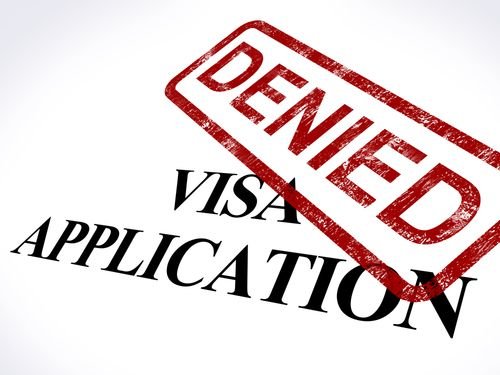Securing a Canada Skilled Worker Visa is a dream for many individuals seeking better opportunities and a higher quality of life. The Canadian immigration system offers several pathways for skilled workers to obtain permanent residency, with the Express Entry system being one of the most popular. This comprehensive guide provides tips and insights to help you navigate the process and increase your chances of securing a Canada Skilled Worker Visa.
Understanding the Canada Skilled Worker Visa
The Canada Skilled Worker Visa is primarily managed through the Express Entry system, which includes three economic immigration programs:
- Federal Skilled Worker Program (FSWP): For skilled workers with foreign work experience.
- Federal Skilled Trades Program (FSTP): For skilled tradespeople with experience in a trade occupation.
- Canadian Experience Class (CEC): For individuals with Canadian work experience.
The Comprehensive Ranking System (CRS) is used to evaluate and rank candidates in the Express Entry pool. Points are awarded based on factors such as age, education, work experience, language proficiency, and additional factors like provincial nominations and job offers.
Step-by-Step Tips for Securing Your Canada Skilled Worker Visa
1. Research and Choose the Right Immigration Program
Each program under the Express Entry system has specific eligibility criteria. It’s essential to determine which program best suits your profile:
- Federal Skilled Worker Program (FSWP): Requires at least one year of continuous, full-time, or equivalent part-time paid work experience in a skilled occupation within the last ten years. You must also meet the minimum language proficiency and education requirements.
- Federal Skilled Trades Program (FSTP): Requires at least two years of work experience in a skilled trade within the last five years, a job offer or a certificate of qualification in your trade issued by a Canadian authority, and language proficiency.
- Canadian Experience Class (CEC): Requires at least one year of skilled work experience in Canada within the last three years and meeting the language proficiency requirements.
2. Improve Your Language Proficiency
Language proficiency in English and/or French is a critical factor in the CRS score. Here are some tips to maximize your points:
- Prepare for Language Tests: Take recognized language tests such as IELTS or CELPIP for English and TEF Canada or TCF Canada for French. Aim for a high Canadian Language Benchmark (CLB) level.
- Enroll in Language Courses: Consider enrolling in language classes to improve your proficiency.
- Practice Regularly: Use language learning apps, practice speaking with native speakers, and take practice tests.
3. Enhance Your Educational Qualifications
Higher education levels can significantly boost your CRS score. Consider the following:
- Pursue Higher Education: If feasible, consider obtaining a higher degree, such as a Master’s or Ph.D.
- Get an Educational Credential Assessment (ECA): Ensure your foreign degrees are recognized by getting an ECA from a designated organization. Without this assessment, your educational qualifications won’t be considered.
4. Gain Relevant Work Experience
Work experience in skilled occupations is a crucial component of your CRS score. Here’s how to optimize it:
- Accumulate More Experience: Aim to gain as many years of skilled work experience as possible.
- Canadian Work Experience: Work experience in Canada is highly valued. Consider programs like the Working Holiday Visa to gain Canadian experience.
- Document Your Work History: Ensure all your work experience is well-documented, including job titles, duties, and duration of employment.
5. Optimize Age Factor
Age is an important factor in the CRS score. While you can’t change your age, you can strategically plan your application:
- Apply Early: The highest points for age are awarded to individuals aged 20-29. Applying within this age range can maximize your score.
- Timing Matters: If you are approaching a new age bracket that might reduce your points, consider submitting your application before your next birthday.
6. Leverage Spouse or Common-Law Partner Points
If you are applying with a spouse or common-law partner, their skills can contribute to your CRS score. Here’s how:
- Spouse’s Education: Ensure your spouse’s educational qualifications are assessed through an ECA.
- Spouse’s Language Proficiency: Encourage your spouse to take language proficiency tests and aim for high scores.
- Spouse’s Work Experience: Document your spouse’s work experience to contribute additional points.
7. Utilize Skill Transferability Factors
Skill transferability factors combine your education, work experience, and language skills. Maximizing these can boost your score:
- High Language Proficiency and Education: Combining advanced degrees with high language proficiency can earn you significant points.
- Canadian and Foreign Work Experience: Combining Canadian work experience with foreign work experience and strong language skills can provide additional points.
8. Seek a Provincial Nomination
Provincial nominations can add a substantial 600 points to your CRS score, virtually guaranteeing an Invitation to Apply (ITA). Here’s how to secure one:
- Research Provincial Programs: Each province has its own nomination programs with specific criteria. Identify which provinces align with your skills and experience.
- Apply to Provincial Programs: Submit an expression of interest or apply directly to provincial nomination programs that suit your profile.
9. Obtain a Valid Job Offer
A valid job offer from a Canadian employer can add 50-200 points to your CRS score. Here’s how to secure one:
- Network: Use professional networking platforms like LinkedIn to connect with Canadian employers.
- Job Portals: Utilize Canadian job portals and recruitment agencies to find job opportunities.
- Labor Market Impact Assessment (LMIA): Ensure your job offer is supported by a positive LMIA unless exempt under specific agreements.
10. Document All Required Information
Accurate and thorough documentation is essential for a successful application. Here’s what you need to do:
- Prepare All Documents: Gather all necessary documents, including identification, educational credentials, work experience letters, language test results, and proof of funds.
- Ensure Accuracy: Double-check all details for accuracy and completeness to avoid delays or denials.
- Professional Help: Consider consulting with an immigration lawyer or consultant to ensure your documentation is in order.
11. Prepare for the Express Entry Profile Submission
Submitting an accurate and competitive Express Entry profile is crucial. Here’s how to prepare:
- CRS Calculator: Use the CRS calculator on the official Canadian immigration website to estimate your score and identify areas for improvement.
- Complete Profile: Ensure all sections of your profile are complete and up-to-date.
- Submit Early: Submit your profile as soon as you meet the eligibility criteria to enter the Express Entry pool.
12. Stay Informed About ITA Draws
Regularly check the latest Express Entry draws to stay informed about the minimum CRS scores required for an ITA. Here’s how:
- Monitor CIC News: Follow Citizenship and Immigration Canada (CIC) news and updates to stay informed about draw results and changes to immigration policies.
- Track CRS Cut-Off Scores: Analyze the trends in CRS cut-off scores to gauge your competitiveness in the pool.
13. Be Patient and Persistent
The process of securing a Canada Skilled Worker Visa can be lengthy and competitive. Patience and persistence are key:
- Stay Motivated: Keep your end goal in mind and stay motivated throughout the process.
- Reapply if Necessary: If you don’t receive an ITA in your first attempt, continue improving your profile and reapply.
Additional Tips and Resources
1. Join Immigration Forums and Communities
Online forums and communities can provide valuable insights and support. Join platforms like:
- CanadaVisa Forum: A popular forum where applicants share experiences and advice.
- Reddit: Subreddits like r/ImmigrationCanada offer community support and updates.
2. Utilize Government Resources
The Canadian government provides numerous resources to help applicants:
- IRCC Website: The official Immigration, Refugees and Citizenship Canada (IRCC) website offers detailed information on programs and requirements.
- CRS Tool: Use the CRS tool to estimate your score and identify improvement areas.
3. Consider Professional Assistance
If you find the process overwhelming, consider seeking help from professionals:
- Immigration Lawyers: Can provide legal advice and assistance with complex cases.
- Regulated Canadian Immigration Consultants (RCICs): Offer personalized guidance and support.
4. Stay Updated on Immigration Policies
Canadian immigration policies can change, impacting eligibility and CRS scores. Stay updated by:
- Subscribing to Newsletters: Subscribe to newsletters from immigration websites and law firms.
- Following Social Media: Follow official accounts and reputable sources on social media for real-time updates.
Conclusion
Securing a Canada Skilled Worker Visa requires strategic planning, thorough preparation, and persistence. By understanding the eligibility criteria, optimizing your CRS score through various factors, leveraging additional points, and staying informed about the latest updates, you can enhance your chances of receiving an Invitation to Apply.
Remember, each step you take towards improving your profile brings you closer to achieving your dream of living and working in Canada. With diligent effort and a proactive approach, you can successfully navigate the immigration process and secure your future in one of the world’s most welcoming and opportunity-rich countries. Good luck.


